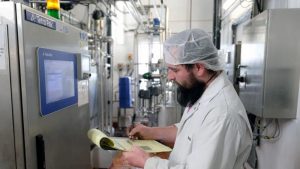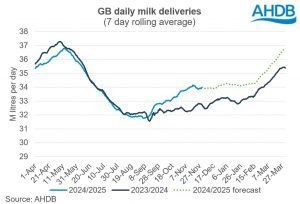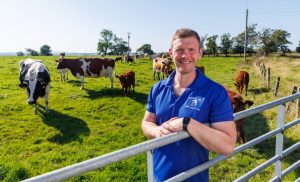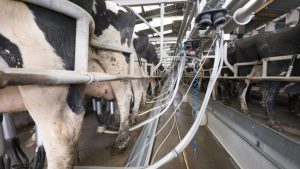
Although milk production is down and costs are up, demand is strong, says Stephen Dark, the chairman of the South West NFU’s regional dairy board.
Rocketing inflation has lead to the cost of feed, fertiliser and fuel rising steeply. This, together with the after effects of the hot summer, has had an impact on the amount of milk farmers could produce.
Stephen said: “Weather-wise, we have faced a challenging year with one of the hottest and driest summers on record, resulting in restricted grass growth and smaller quantities of conserved forage.
“Milk production was impacted and remained consistently below the level of previous years. Forecast production is lower too, with some extremely concerned about the quantities of silage already fed to their cattle.”
Most milk-producing countries have suffered from drought, leading to a worldwide drop in production, but Stephen said that demand for dairy products remained strong and south west farmers were well-placed to help meet it.
“There’s a level of demand for the milk we produce that we haven’t experienced for a long while. Milk processors are facing the challenge of protecting current supply whilst potentially recruiting additional litres,” he said.
“This current balance of supply and demand gives me confidence for the future of dairy. Thankfully, rising costs were acknowledged throughout the dairy industry and a succession of price increases have helped to ease the volatility faced by most producers.
“These increased returns are essential for the forthcoming supply of milk. We are all facing the prospect of additional environmental demands, ranging from carbon foot-printing to air and water quality regulations.”
Stephen said assistance with energy costs beyond the initial six-month period which has been promised so far would be ‘crucial’ for the dairy industry.
























